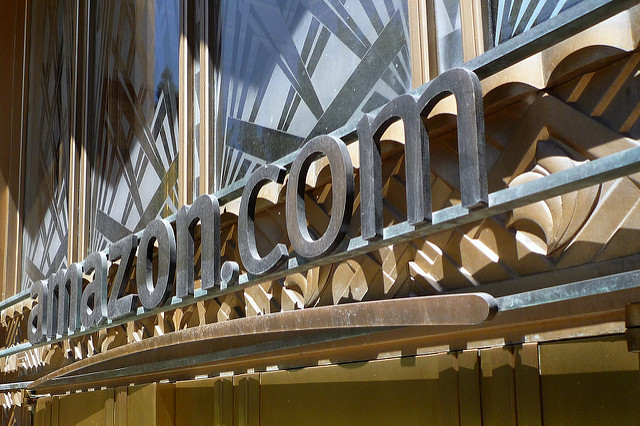Amazon’s Fake Review Problem Is An Opportunity For Disruption
As do a huge portion of Americans, I use Amazon (AMZN) a LOT these days. And with a 50% market share, it absolutely dominates online sales in the country.
But lately, I’m frustrated with it. I’ve bought a few items recently that were very highly rated (4.6 stars) but turned out to be of poor quality.
I think I know what’s going on. Amazon sellers have figured out how to game the system. They pay people to buy the product, give it 5 stars and write a nice review.
In a few recent deliveries, I received, there were even offers to get a $5 or $10 Amazon gift card for writing a review. There are big operations that do nothing but generate fake Amazon reviews.
It’s a tempting proposition for sellers. Amazon prioritizes products that have great reviews in search. And top search results get the bulk of sales. Having great reviews can also cause a product to be marked as “Amazon’s Choice,” which is another major boost to sales.
So there’s a huge incentive for people who sell on Amazon to pay for fake reviews. That can lead to bad products — with great ratings — leading the sales charts. It’s a nice short-term boost to revenue for Amazon. But the long-term effects on customer loyalty won’t be good.

Fake Reviews and Copycat Products
I would think Amazon could use machine learning to detect these fake reviews, by analyzing user behavior and language. But they don’t seem to have accomplished much so far.
The company appears to be combatting this problem mostly by offering its own line of products called AmazonBasics. They offer millions of items under the brand. But can they really scale up to having their own version of everything and keep quality high? It remains to be seen.
Another problem with Basics is that Amazon has allegedly copied its top sellers’ products. Since Amazon sees all the sales data, it knows what’s selling well. So it can simply copy the product, then undercut on price.
They allegedly did this recently to a company called Peak Design, which had a popular $100 sling bag they were selling on Amazon. AmazonBasics released a similar product not long after — at a $21 price point. Needless to say the merchant no longer sells through Amazon.
Eventually, Amazon needs to solve the fake review problem and the copycat problem. Otherwise, customers and merchants will start to look elsewhere (as I am).
Amazon Is (Slightly) Vulnerable
I think the copycat problem and the fake review problem have made Amazon more vulnerable to disruption.
Shopify — with around 20% of the U.S. online market — seems like the obvious favorite to disrupt Amazon at this point. It’s a totally different model than Amazon, but it works. I think it (partially) gets around the fake review problem by empowering individuals with expertise in a certain area to build their own online shop. There’s a lot of value in this type of e-commerce.
I’ve found myself looking for individual online stores more recently. I want to buy from someone who understands the product they’re selling deeply and knows which products are the best. This is the Shopify (SHOP) bull case in a nutshell (note: I don’t own the stock, it seems way too expensive currently).
Whoever ends up disrupting Amazon will have to solve the fake review problem. I think that’s a key ingredient. Shopify, Costco (COST), and Walmart (WMT) are all potential disruptors. But there are other ways to get around this fake review problem.
I recently discovered a startup that’s using an algorithm to scan product reviews and determine which are fake and which are genuine. It’s called Fakespot, and it’s an app and browser extension that screens out products with fake reviews.
This is another potential way in which Amazon could be disrupted. I suspect we’ll start to see more of these types of products in the near future — shopping apps and extensions that automatically determine whether a product’s reviews are legit or not. I could see such an app scaling into a huge business eventually. The data alone would be worth a huge amount.
There are going to be a lot of interesting attempts to grab market share from Amazon over the coming decades. It will be fascinating to see which companies find success.
Disclaimer: Read our full disclaimer here.




Quite interesting about the fake reviews, and whatever scheme is being utilized to spot them. It is especially interesting to me because in my business I buy a lot of products that are used for clients, and I am asked to answer questions about those products, as well as write reviews. Since I always evaluate product specifications prior to purchase the reviews generally are good. The whole concept of fake reviews looks like a source of fraud, and may even be covered by laws. Amazon needs to be careful.